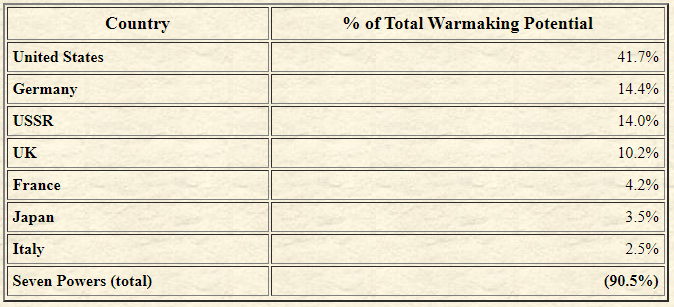One thing not mentioned sofar is the effect on powers that stayed neutral in historical ww2. I think for example that turkey would join the anti-soviet side, opening another front for the soviets, opening the black sea to hostile fleets entering through the dardanelles, dooming the soviet navy there. Naval supply across the black sea can help supplying the invaders of AG South.
Switzerland will certainly not join the soviet camp, but is also not very important.
The big one will be the south-american countries. I am not an expert on these but I understand that there are some rivalries between some of them. Depending on which bloc supports which country, an interesting side-theatre of war could happen in south america.
Even if they all remain neutral, the question will still arise with which bloc they will be able to trade, which navy will be able to wrestle control of the atlantic, etc.
Manpower and occupation policy: As I understand it, the soviet union looses the benefit of a "great patriotic war", since they are the initial attacker. That combined with a more moderate nazi party could lead to a different approach towards say the ukrainians. If treated differently than OTL, the ukrainians could turn on the soviets, perhaps with a promise of independence? germany would have less prisoners of war, a smaller forced labor workforce.
R&D: Nuclear bomb development was mentioned. However I think that the race to the bomb will be less lopsided. If both blocs are developing nuclear weapons and one side gets it first, it is not necessarily an automatic war winner. 3 scenarios are possible:
The bomb is used immediately, to show force and force diplomatic talks.
The bomb is held for later, for use in an operationally favorable way.
The bomb is held for later, and used in a desperate attempt to stop the other side in a theater of war where they are winning. (least likely).
It is hard to predict who will get the nuke first. Also while hypothetically one side uses the bomb first (and will most likely use it somewhere at the periphery), the other side might not be lagging behind so much that they must immediately surrender.
A hot nuclear war could begin, though the number of bombs produced would be rather limited in the beginning. And hopefully this would result with peace talks eventually.
Last but not least, the anti-soviet bloc does not suffer from blocade in research, meaning they can with no problems exchange information, research and scientists, while the USA and the soviet union are pretty much isolated from each other, except maybe a risky longrange flight across the northpole(?). The antisoviet bloc can pool its research much easier than the soviet-USA block.
